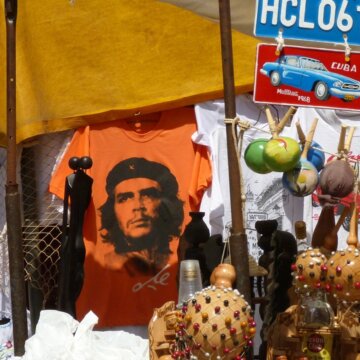- About
- Topics
- Picks
- Audio
- Story
- In-Depth
- Opinion
- News
- Donate
-
Signup for our newsletterOur Editors' Best Picks.Send
Read, Debate: Engage.
| topic: | Health and Sanitation |
|---|---|
| located: | Cuba, Venezuela |
| editor: | Ellen Nemitz |
COVId-19 has found Cuba already in the midst of a crisis. After the release of USA sanctions for some time now, and a great flow of tourists and money to the socialist island, political borders are closed once again; together with other problems – such as Venezuela’s oil supply drop – life quality in the island has substantially decreased. While the disease, officially, has not affected so much the country with counts around three thousand cases and less than one hundred deaths, lockdown is another blow to an already weak economy.
The Cuban journalist Mónica Baró explained in an article published in 2019 by the magazine El Estornudo how it is to search for products in the markets: "a not at all pleasant adventure [...] You should consider yourself a lucky person if, after exploring various markets, crossing municipal borders, enduring the slowness and, on many occasions, the hostility of the queues, you get three or four products of what you needed,” she said.
Recently, the economist Omar Everleny Pérez Villanueva analysed, also in El Estornudo, the additional impact of lockdown. "The first impact fell on a fundamental variable for the Cuban economy: international tourism, which has been practically null until today. To this must be added the interruption of part of the activities carried out by the private sector, which has led to less supply of certain products. Industrial activities were also affected due to lack of raw materials, among other aspects,” he said. For all this, the worsening of shortages in Cuban markets has been reported.
President Miguel Díaz-Canel seems to be aware of new times, in a Cuba "more connected with the world, [which] has been using social networks to mobilize," as describes Mónica Baró. In July, he announced new economic measures to deal with the crisis, and they seem to be a nod to decentralisation. The changes now in force include the facilitation of purchases by restaurant owners, more autonomy for small and medium-sized companies to run and monetary reforms, aiming to boost the economy and guaranteeing the supply of goods to the population.
Some of the government acts were seen with optimism by Cubans, but the concerns are still hovering: "The measures that began to be implemented on July 20 may generate some economic progress, at least according to an understanding of the economy circumscribed to the capacity to consume goods and services of a population, but they will not lead us to a more inclusive and democratic Cuba,” analysed journalist Mónica Baró, also mentioning the absence of freedom of the press in the country, where the denounces of unjustified arrests of journalists are frequent and independent journalism is persecuted.
Villanueva has a similar opinion, saying that the measures may benefit just a part of the population, and summarises that, "In other words, it is possible to get out of the crisis, but for that the rules that govern the economic activity of the country must almost completely change.”
Image by Peter Kraayvanger

